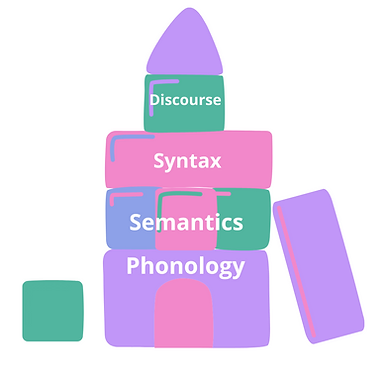Why is Essay Writing SO Hard for Some Students?

Stephanie Tsapakis
|
Published on Feb 10, 2023 : 3 min read


Stephanie Tsapakis
|
Published on Feb 10, 2023 : 3 min read

Essays. Some love them, some loathe them.
For many students, writing an essay can seem like a cruel form of torture that requires an excessive amount of effort to communicate what they know.
Writing is communicating with a reader. Whether your purpose is to compare and contrast, tell a narrative, or persuade your reader to believe or understand something, it is integral for the message to be clear and well organized.
Composing a good essay is more than just getting your thoughts on paper. In fact, written expression uses various parts of the brain related to language and communication.
Written expression relies on parts of your brain that use phonemic awareness, phonics and spelling, syntax, vocabulary, morphology, and even executive function and organizational skills. This would suggest that if an individual has a weakness is one or more of those areas (which many students with learning differences do), the writing process will become more arduous.
The image below shows how the hierarchy of language works. Each section builds upon itself. If there is a breakdown in one level or block, everything above it becomes less stable as well.

When we are writing an essay, we are not just jotting some thoughts down. We are using our short- and long-term memory functions to draw on background information and experience about the topic and writing strategies. Then, we are using executive function skills to plan the details, structure, and concepts to be shared in the essay. Once we begin to write an essay, we use phonology (sounds), semantics (vocabulary), syntax (word order/sentence structure), and discourse (everything just listed wrapped up together into a paragraph) in each individual essay we write or type. (This also includes the thinking and planning portions of essay writing.)
If a student struggles with spelling, the entire process will be much slower because they will often get stuck as they encounter difficult words. They focus so much of their time sounding out and correcting words, they might forget what they wanted to say in the first place.
If a student struggles with word finding, they also may begin to lose their train of thought while they work through finding the word or finding a replacement.
If a student struggles with impulse and organization, they may write sentences with poor grammar or leave words out. They could get distracted by the green and red underlines telling them they made mistakes, and spend so much time trying to correct it that they forget what they wanted to say next.
If a student struggles with processing or long-term storage and retrieval, they simply may not be able to even conjure the words in their head to communicate their message, let alone actually type or write them into a complete sentence.
Writing is hard, and it is a very complex task that requires multiple parts of our brains. Students can struggle with essay writing for a number of reasons, and it is difficult and frustrating to witness if you do not understand how complex the skill is.
The same thing we do for other learning differences - explicit instruction and accommodations.
When a child struggles with reading, we can do intensive phonics intervention to help their phonology skills, thus improving both reading and spelling.
There are also ways to explicitly teach organizational skills for writing and proper sentence structure and grammar.
In terms of accommodations, graphic organizers for essay planning can be immensely helpful, as long as there is explicit instruction about how to effectively use them. Speech to text tools are also helpful because they bypass certain areas that may cause a writer to get stuck (spelling, grammar, dysgraphia, etc...).
Writing is about being creative and expressing yourself, but so is dancing and painting. When a ballerina is learning and building muscle, the barre provides support and balance. When an artist is learning a new technique, they may throw away or paint over multiple canvases before feeling confident about their skills.
We wouldn't expect anyone to simply perfect either of these arts without years of instruction and practice, so why do we expect our children to be able to write good essays without the same instruction and support?
Finding the right tutor for your child could be a huge asset to improving their writing skills. LD Expert has teachers that understand the processes of written expression and how to help your student reach their full potential with their essay writing skills.
Looking for personalized support for your child's learning journey?
Our tutoring and dyslexia intervention services are tailored to students with learning differences. Whether it's reading, writing, or other challenges, our team offers one-on-one guidance.
Start with a consultation!Stay updated with our latest blog posts.
Cart